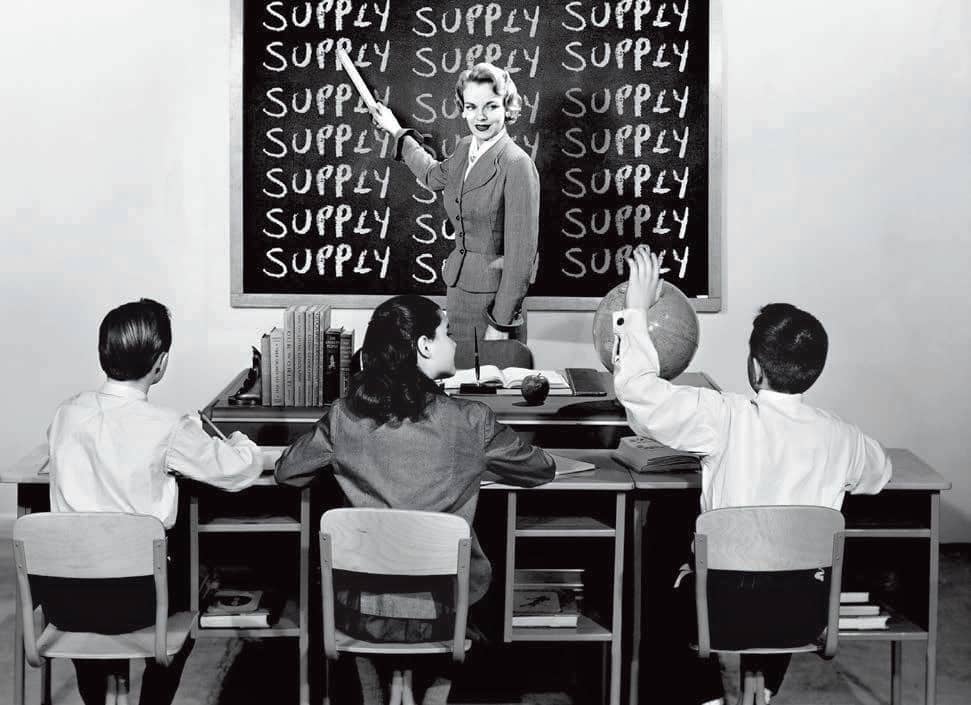
The 2008 financial crash ripped a giant hole in the incomes and wealth of Americans, limiting their ability to afford everything from big-ticket purchases like cars to their rent. The government declined to fill that hole in deference to a superstitious fear of deficits. This kept many millions of U.S. workers on the economy’s sidelines and myriad industrial facilities underutilized. For years, America’s capacity to produce goods and services exceeded consumers’ ability to pay for them.
This was a tragic state of affairs for the U.S. economy but, in some respects, a convenient one for American liberalism. Since the days of LBJ’s Great Society, liberals’ reform ambitions have largely focused on demand-side policy. The Affordable Care Act effectively gives Americans more money to spend on medical services through insurance subsidies. Food stamps give low-income households more money to spend on groceries. Social Security increases seniors’ disposable income.
In a demand-constrained economy, these kinds of policies are free lunches: Since there is spare productive potential, putting cash in people’s pockets not only benefits them directly but also aids the broader economy, as higher consumer spending encourages growth.
Relatedly, in an economy with relatively low inflation—like America’s from 2009 through 2020—the government need not offset new spending with taxes in order to keep prices from shooting through the roof. And that too was very convenient for liberals, who are perennially tasked with reconciling their movement’s expansive vision for the welfare state with Americans’ aversion to higher tax rates.
This story is from the January 02, 2023 edition of New York magazine.
Start your 7-day Magzter GOLD free trial to access thousands of curated premium stories, and 9,000+ magazines and newspapers.
Already a subscriber ? Sign In
This story is from the January 02, 2023 edition of New York magazine.
Start your 7-day Magzter GOLD free trial to access thousands of curated premium stories, and 9,000+ magazines and newspapers.
Already a subscriber? Sign In

LIFE AS A MILLENNIAL STAGE MOM
A journey into the CUTTHROAT and ADORABLE world of professional CHILD ACTORS.

THE NEXT DRUG EPIDEMIC IS BLUE RASPBERRY FLAVORED
When the Amor brothers started selling tanks of flavored nitrous oxide at their chain of head shops, they didn't realize their brand would become synonymous with the country's burgeoning addiction to gas.

Two Texans in Williamsburg
David Nuss and Sarah Martin-Nuss tried to decorate their house on their own— until they realized they needed help: Like, how do we not just go to Pottery Barn?”

ADRIEN BRODY FOUND THE PART
The Brutalist is the best, most personal work he's done since The Pianist.

Art, Basil
Manuela is a farm-to-table gallery for hungry collectors.

'Sometimes a Single Word Is Enough to Open a Door'
How George C. Wolfein collaboration with Audra McDonald-subtly, indelibly reimagined musical theater's most domineering stage mother.

Rolling the Dice on Bird Flu
Denial, resilience, déjà vu.

The Most Dangerous Game
Fifty years on, Dungeons & Dragons has only grown more popular. But it continues to be misunderstood.

88 MINUTES WITH...Andy Kim
The new senator from New Jersey has vowed to shake up the political Establishment, a difficult task in Trump's Washington.

Apex Stomps In
The $44.6 million mega-Stegosaurus goes on view (for a while) at the American Museum of Natural History.